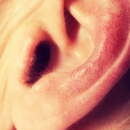
Most people don’t get the suggested eight hours of sleep, but there are also 25% of people suffer from insomnia, a sleep disorder.
So many people don’t know that much about insomnia and can sometimes confuse it with getting a bad night’s sleep.
Keep reading, and we’ll break down all of the facts about insomnia that you need to know.
What Is Insomnia?
Insomnia is when it’s difficult for you to fall and stay asleep, even if you have a lot of time to do so. If you have insomnia, you are normally unsatisfied with your night’s sleep (or lack of) when you wake up the next morning.
You may have low energy and fatigue all day. Even though you’re extremely tired, it can still be hard to fall asleep the next night as well.
Different Types of Insomnia
Insomnia is a broad term. However, there are all kinds of different types of insomnia that people can have.
Acute Insomnia
Acute insomnia is normally called short-term insomnia. These symptoms may last for a few weeks, but they normally go away on their own after that.
Acute insomnia could be caused by certain life events, like being stressed out short term. If you have something that is preventing you from getting a good night’s sleep and will resolve in a while, then you probably just have acute insomnia.
This type of insomnia normally treats itself without having to do anything about it.
Chronic Insomnia
However, chronic insomnia normally doesn’t go away on its own.
If your sleep problems have lasted at least three nights a week for three months or longer, then you may have chronic insomnia.
Sometimes this type of insomnia is due to changes in your environment, having an unhealthy sleeping schedule, certain medications, and even clinical disorders.
Chronic insomnia normally doesn’t go away on its own, so you will have to seek treatment for it. However, there are all kinds of treatments out there to help you get a good night’s sleep again.
Causes of Insomnia
We already talked about a few of the causes of insomnia. However, we’ll look more in-depth at some other causes as well.
Circadian Rhythm Disruptions
If you’ve recently taken a long flight, you may be experiencing jet lag which could lead to temporary insomnia. You may even feel tired from different changes in altitude and weather.
If you’re sleeping in a hotel, you may be kept up all night by new noises that you’re not used to.
Medical Conditions
Medical conditions like chronic pain, acid reflux, asthmas, and sleep apnea can cause insomnia.
In addition, it could be mental illnesses such as depression, anxiety disorders, and bipolar disorders. If you have any of these, you should talk to your doctor about your insomnia as well.
Genetics
Sometimes insomnia is genetic as well. If you have a family member who has insomnia, your chances are higher.
If you’re interested in this, you can also check out this helpful blog.
Symptoms
If you think you are suffering from insomnia, you may notice some of these symptoms in yourself.
If you experience insomnia, you may end up:
- Waking up too early
- Not being able to fall asleep
- Not getting enough deep sleep
- Fatigue
- Mood Changes
- Irritability
- Depression
- Difficulty falling asleep
- Low energy
- Not being able to concentrate
- Forgetting things
- Low quality of life
- Accidents
- Memory loss
If you have any of these symptoms, especially not being able to sleep, you may have insomnia.
How to Treat It
If you think you have insomnia, there are several different ways that you can treat it. Some of these treatments include pharmaceutical treatments, but there are nonpharmaceutical treatments as well.
You can talk to your doctor about different treatment options and determine a regimen that you are both comfortable with. You may need to try different treatments until you find one that works for you.
Cognitive and Behavioral Therapy
One of the popular treatments is using cognitive and behavioral therapy (CBT) to help treat your insomnia.
If your insomnia is caused by mental illness, then this may help as well. CBT works to help change your behaviors and your thoughts so that you can get a better night sleep.
You can practice relaxation, deep breathing, and even meditation to help you fall asleep.
You will learn to only associate your bedroom with sleep instead of using it for studying or doing work.
Medical Treatments
Some medical treatments include taking different medications.
There are some over-the-counter meds, but they are not always recommended to use. They may have some bad side effects and could end up not helping very much.
Make sure that you talk with your doctor before you start taking any medications.
Home Remedies
In addition to all of these treatments, you may want to try a few home remedies to help you get a good night’s sleep.
You could try to improve your sleep hygiene. This means that you try and keep a consistent bedtime and wake up time.
Make sure that you exercise but don’t exercise too close to bedtime.
Try not to go to bed hungry but don’t eat too soon before bed.
If you are still tossing and turning in your bed, get up and do something to help you wind down. When you feel tired again, return to bed.
You should try and turn off the lights before you get ready to go to bed. Don’t use your phone or any other electronics, as the screens normally emit blue light which can mess with your circadian rhythm.
Learn Some More Facts About Insomnia
These facts about insomnia help give you a good idea of what insomnia is like.
Having insomnia can take a toll on your health, but there is a treatment out there for you.
For more tips to help with your health, make sure that you check out some of our other blog posts!

























